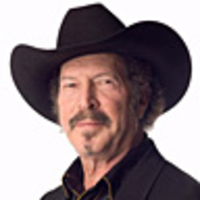
I’m 65 years old, though I read at the 67-year-old level. I’m an old school, independent Democrat. Hell, I can’t afford to be a Republican. I’m not for big government or small government; I’m for efficient government, government that works for the people. George Washington, who eschewed the notion of political parties, once said that all we needed was “common sense and common honesty.” Unfortunately, these two commodities are almost impossible to find in the town named after our first president.
Indeed, the Democrats and the Republicans have become the bullies of the playground. They amply fulfill my definition of politics: poly means more than one, and ticks are blood-sucking parasites.
Today’s Democrats seem very much like—well—Republicans. If the Democrats still had voices like Barbara Jordan, Ann Richards, and Molly Ivins, there might never have been a need for a Tea Party.
In this blighted political landscape, through the green fuse of the emotional history of America, blooms suddenly the Tea Party movement. Where it started, no one knows, possibly in Texas, where the men are men, and the emus are nervous. Not as nervous, however, as the Democrats and the Republicans.
Not knowing which way the ball was going to bounce, the Republicans seemed at first to take a cautious approach toward the Tea Party. If this burgeoning, impassioned group remained at third-party status through November, there might be hell to pay. On the other hand, if the GOP could coax this Constitution-conscious camel into its tent, there might be a real shot at taking back the House and the Senate.
• Benjamin Sarlin: Why the Tea Party Isn’t Touching Financial Reform • Obama’s 7 Broken Promises The Democrats, for their part, tried to ignore what they desperately hoped wasn’t the elephant in the room. Some in the party referred to them as “tea-baggers”, a rather kinky slang term that titillated a few college students but otherwise accomplished very little. Then they began calling the Tea Party folks ignorant. (Recent polling shows the Tea Party to be better educated and more affluent than most Americans.) The Democrats did not hold their fire, however. It wasn’t long before some of the misguided among them began attacking this windmill like a misanthropic, maniacal Don Quixote.
Finally, because the growing crowds of Tea Party people were mostly comprised of whites, they called them racist. They didn’t call NASCAR or Jimmy Buffett racists, although their audiences are mainly white. Besides helping me campaign for governor of Texas as an Independent in 2006, the last time I checked, Jimmy was a good little Democrat. Calling the Tea Party racist is like saying that because there are no Orthodox Jews in the crowd at the Grand Ol’ Opry, it must be anti-Semitic. The truth is that the Grand Ol’ Opry crowd is probably more pro-Israel than the Obama administration.
The race-baiting tactic demonstrated the desperation of the Tea Party’s attackers. Yet to my unfurnished eyes, the early Tea Party folks looked like a convention of harmless, if fairly cranked-up Walmart greeters. They seemed to simply desire to take us back to a time when doctors drove Buicks and coffee with a friend was still a dime. Would they lose their way, I wondered, or would they simply be just like the rest of us who come with the dust and are gone with the wind?
The biggest losers in all this, of course, could well be the Democrats. The Democratic Party of the past had a historically populist core, always standing up for the people against the big corporations and special interests. The Democrats of today sorely lack the moral clarity of a Barbara Jordan, the cojones of an Ann Richards, and the conscience of a Molly Ivins. Today’s Democrats seem very much like—well—Republicans. If the Democrats still had voices like Barbara, Ann, and Molly, there might never have been a need for a Tea Party.
But that is not the case today. Harry Reid’s chances of winning indeed may very largely be in the hands of the Tea Party. If they keep a cohesive, independent attitude all the way through, he might just slip in. If they drift into the GOP tent, he won’t be the only Democrat who may be looking for a job as a Walmart greeter in November.
What does the true face of the Tea Party really look like? Does it not perhaps reflect a shared, spiritual countenance with us all? It reminds me of the time, more than a hundred years ago, when Oscar Wilde was arrested at the Cadogan Hotel in London. Oscar was pretty well walking on his knuckles that evening when an undercover cop approached him and said, “Do you know who I am?” Oscar turned to the bar and said, “Good God! There’s a man here who doesn’t know who he is!”
And then they took him away.
Kinky Friedman is a country music singer, politician, Texas Monthly columnist, the author of a successful mystery series, and was a candidate for Texas governor in 2006. His most recent book is Kinky’s Celebrity Pet Files. You can visit his website here.






